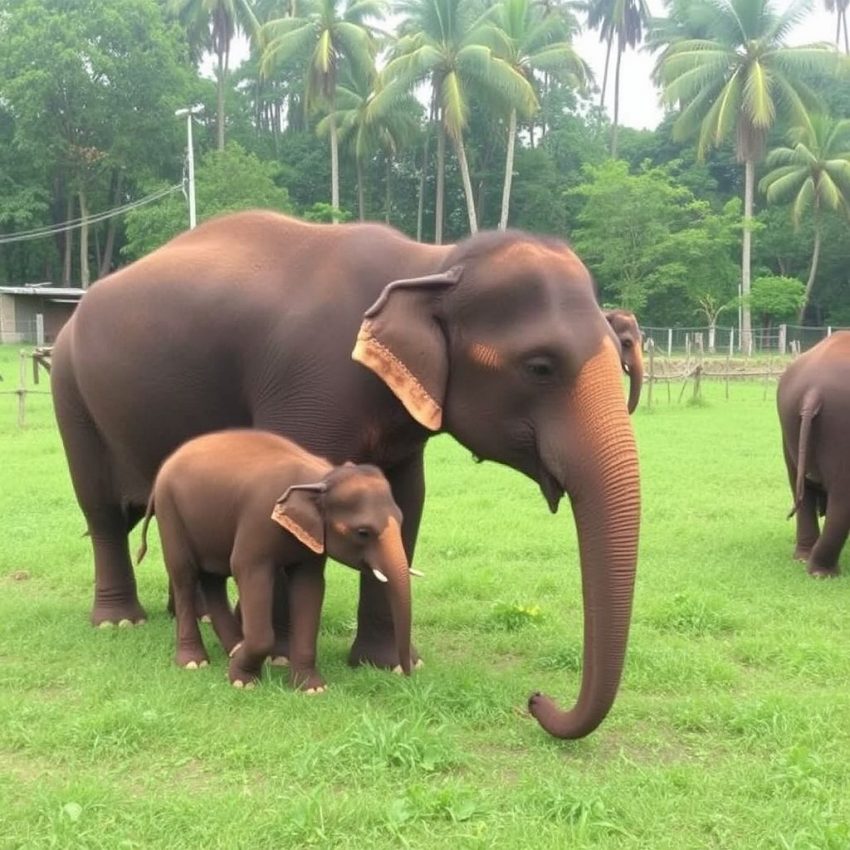Pinnawala Elephant Orphanage: The Dark Truth Behind the Smiles
Pinnawala Elephant Orphanage in Sri Lanka. The name conjures images of adorable baby elephants being rescued and cared for, a sanctuary where these gentle giants roam free. Tourists flock to witness the daily bathing ritual in the river, cameras clicking furiously as the elephants splash and play. But beneath the surface of this seemingly idyllic scene lies a darker, more troubling reality. This isn't the heartwarming haven it's often portrayed to be. It's time to expose the dark truth behind Pinnawala.
The Illusion of Orphanage:
While marketed as an orphanage, many of the elephants at Pinnawala aren't orphans at all. Some are captured from the wild, often separating families and disrupting delicate social structures. Others are born into captivity, destined to a life of confinement and performance. The "orphanage" label serves as a convenient veil, masking the true nature of their captivity.
A Life in Chains:
The iconic river bathing ritual, while visually appealing, is often orchestrated with the use of bullhooks – sharp metal hooks used to control and intimidate the elephants. These majestic creatures are not frolicking freely; they are being led and directed, their movements restricted. Outside of these staged events, many elephants spend significant time chained, limiting their natural behaviours and social interactions.
Exploitation for Profit:
Tourism fuels the operation at Pinnawala. While revenue generated is supposedly used for the elephants' welfare, the focus often seems to be on maximizing profit. Overcrowding, inadequate space, and questionable practices raise concerns about the genuine prioritization of animal welfare. The elephants become commodities, their existence reduced to a spectacle for paying visitors.
The Ethical Dilemma:
Visiting Pinnawala, even with good intentions, contributes to this cycle of exploitation. By supporting the venue financially, tourists inadvertently perpetuate the very practices that harm these intelligent and sensitive animals. The desire to see elephants up close and personal often overshadows the ethical implications of captivity.
Alternatives for Ethical Elephant Encounters:
Thankfully, there are ethical alternatives for experiencing elephants in Sri Lanka. Sanctuaries and rescue centers prioritize the well-being of the animals, focusing on rehabilitation and providing spacious, natural environments. These organizations often offer opportunities for observation without direct interaction, allowing elephants to live with dignity and autonomy.
Making Informed Choices:
Before visiting any elephant attraction, do your research. Ask critical questions about the origin of the elephants, their living conditions, and the methods used for their management. Choose to support organizations that prioritize ethical treatment and conservation over entertainment and profit.
The elephants of Pinnawala deserve better. By understanding the truth behind the facade, we can make informed choices that promote their well-being and help create a future where these magnificent creatures are treated with the respect and compassion they deserve. Let's choose to be responsible tourists and advocate for ethical elephant tourism in Sri Lanka.
Don’t miss out on this exclusive deal, specially curated for our readers!
This page includes affiliate links. If you make a qualifying purchase through these links, I may earn a commission at no extra cost to you. For more details, please refer to the disclaimer page. disclaimer page.

